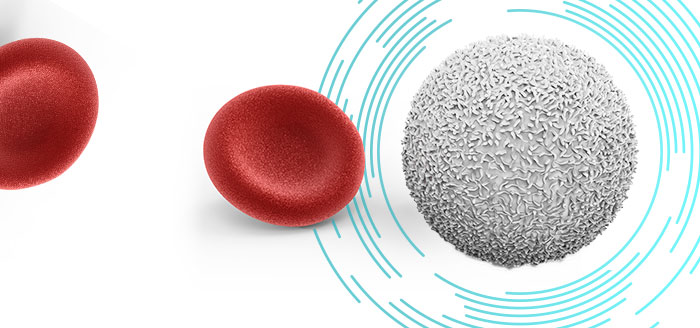How Does Immunotherapy Work?

Mesothelioma is an extremely aggressive cancer with poor prognosis. Cancer research and clinical trials continue to analyze new treatment methods to offer patients to improve survival rate, one of which is immunotherapy. Currently only available to patients through clinical trials, immunotherapy continues to show promise as a cancer treatment for malignant mesothelioma.
Understand all of the current treatments for mesothelioma
What Is Immunotherapy?
Immunotherapy is a treatment that focuses on the body’s immune system, restoring or improving the immune system to slow, stop and kill cancer cells. Also known as biotherapy, immunotherapy is often used in combination with surgery and chemotherapy to help alleviate cancer symptoms and improve the survival rate for patients.
Mesothelioma cancer cells are hard for the body to recognize as harmful cells, making it difficult for the immune system to identify and fight them off, especially as they metastasize (spread). By harnessing immune system functionality and looking at its relationship with cancer, researchers are finding ways to use targeted therapy as a functional method to attack cancer cells.
Active vs. Passive Immunotherapies
There are two types of immunotherapies – active and passive, different in how they use the immune system to address cancer cells. Active immunotherapies rely on the body’s immune system to fight the tumor. Passive immunotherapies involve creating substances (such as antibodies) outside of the body and then introducing them to the patient to kill the cancer cells.
Types of Immunotherapies
Active Immunotherapies:
- Cellular therapy
- Adjuvant therapy
- Cancer vaccines
Passive Immunotherapies:
- Checkpoint inhibitors
- Monoclonal antibodies
- Tumor cell modulation
- Tumor-infiltrating lymphocytes
Active and passive immunotherapies are also classified as specific or non-specific. Specific immunotherapy methods will target a particular type of cancer, whereas non-specific therapies act as a catalyst for a general immune response.
How Successful Is Immunotherapy in Treating Mesothelioma?
Immunotherapy is considered an emerging treatment option, so is currently only available to patients accepted into a clinical trial. This usually happens when patients aren’t responding well to conventional treatments (surgery, chemotherapy and radiation therapy). However, certain immunotherapy drugs, such as bevacizumab (Avastin) and pembrolizumab (Keytruda) have shown some success. With continued research and encouraging results, these drugs could potentially become first-line treatment options and help improve mesothelioma survival rates.
The Success of Checkpoint Inhibitors and Monoclonal Antibodies
Checkpoint inhibitors and monoclonal antibodies in particular have drawn attention to mesothelioma research and treatment with their success rates. With aggressive cancers such as malignant pleural mesothelioma, these immunotherapy treatments could help greatly alleviate negative symptoms, expand life expectancy and improve quality of life for mesothelioma victims.
What Do Checkpoint Inhibitors and Monoclonal Antibodies Do?
Checkpoint inhibitors:
- Block proteins that could potentially keep T cells from killing cancer cells
- Stimulate the immune system to release T cells
- Encourage immune cells to more effectively kill cancer cells
- Examples: PD-1/PD-L1 and CTLA-4/B7-1/B7-2
Monoclonal antibodies:
- Target cancer-specific proteins and processes
- Block the formation of new blood vessels that support tumor development
- Block proteins involved with tumor vessel growth
- Examples: Bevacizumab (Avastin), ramucirumab (Cyramza), and Nivolumab (Opdivo)
Some of these drugs have already been FDA approved to treat some kinds of cancer, like lung cancer, kidney cancer, skin cancer, and bladder cancer. More clinical trials are still ongoing to determine the best immunotherapy drugs and combinations to hopefully achieve FDA approval for more types of cancer.
What Are the Side Effects of Immunotherapy?
Side effects can vary from patient to patient, depending on the type of mesothelioma, other treatments being used, overall patient health and more. However, there are some common side effects to consider.
Common Immunotherapy Side Effects
- Fever and/or chills
- Weakness and/or dizziness
- Nausea or vomiting
- Achy muscles or joints
- Fatigue
- Headache
- Trouble breathing
- Low or high blood pressure
- Swelling and/or weight gain
- Heart palpitations
- Sinus congestion
- Upset stomach and/or diarrhea
- Higher risk of infection
Who Can Get Immunotherapy?
As mentioned before, cancer immunotherapy is a treatment technique only available through clinical trials for many types of cancer, including mesothelioma. Clinical trials have specific criteria that patients must meet before being accepted. Common eligibility criteria includes a particular cell type and stage classification, so it’s important for patients to research and discuss with their health care teams what clinical trials may be available.
First and foremost, anyone exhibiting symptoms of mesothelioma should seek professional medical care immediately. Early diagnosis is key to the best survival rate. Physicians can then advise the best treatment plan.
Are There Similar Alternatives to Immunotherapy?
Aside from immunotherapy for mesothelioma, there are other emerging treatment options to consider to improve life expectancy or quality of life when applied palliatively. Other emerging treatments include gene therapy, p53 gene therapy, epigenetic therapy, photodynamic therapy, mesothelioma virotherapy and cryotherapy.
Cancer care centers around the United States and the world are constantly delving deeper into existing treatment options and exploring many others with the aim of providing hope for mesothelioma patients.